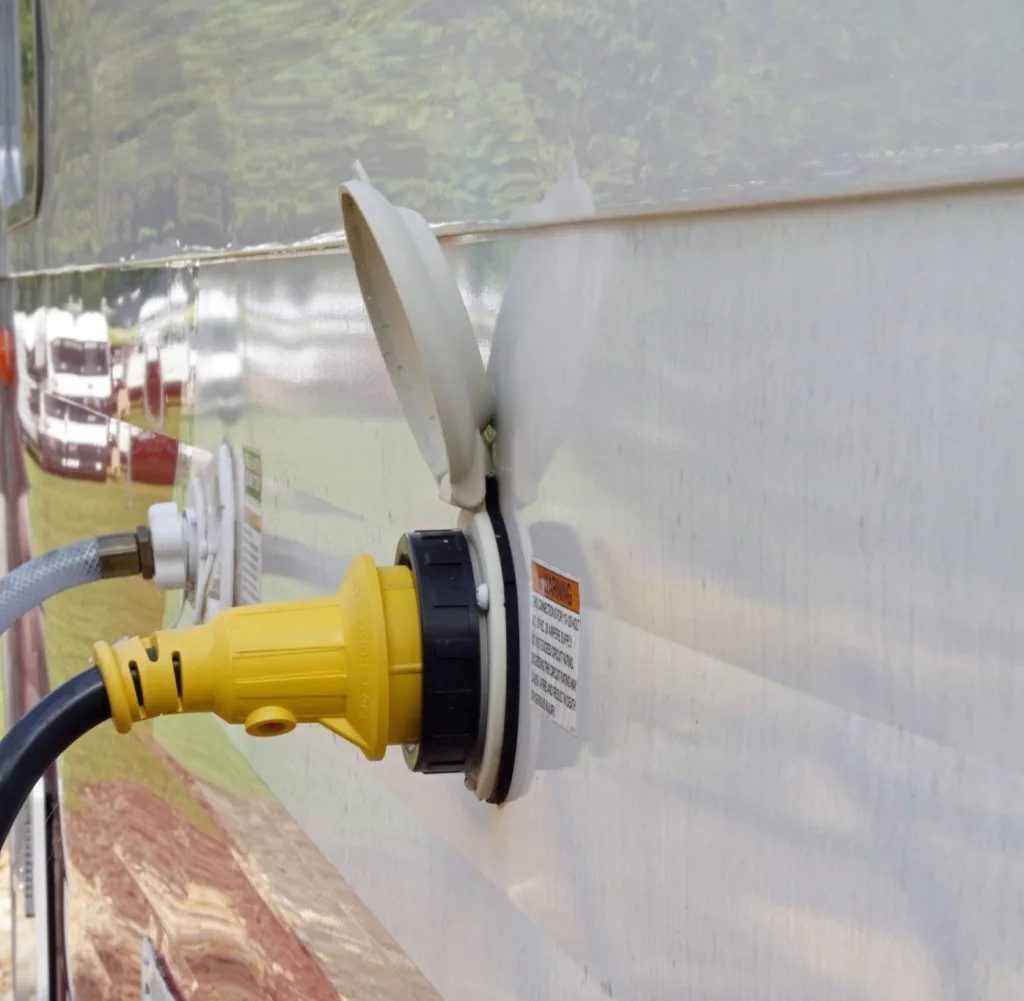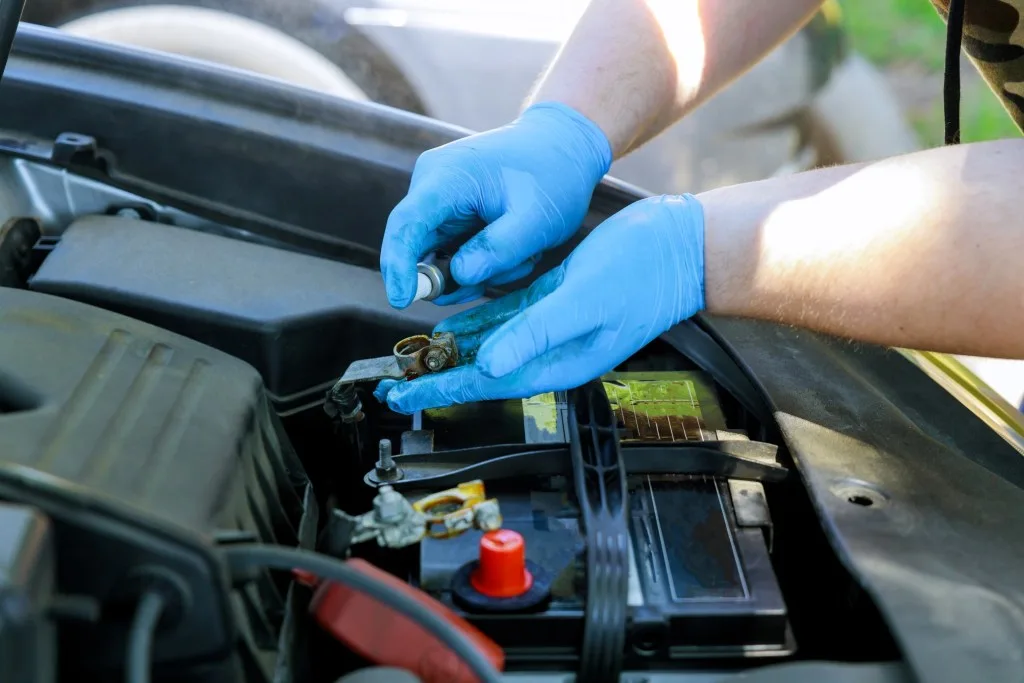RVing allows you to enjoy the pleasant smells of smoke from a campfire, wildflowers as they bloom, and the fresh smell after a summer rain.
However, not all of the smells you encounter while RVing are pleasant. A somewhat common rotten egg smell in your RV will have you curling your nose and evacuating your RV in a hurry.
So why do some RVers smell rotten eggs in their RV?
Let’s plug our noses and take a closer look!
Don’t Ignore Weird Smells In Your RV
If you smell something weird in your RV, don’t ignore it. These types of situations typically don’t get better with time. In reality, they often only get much, much worse the longer you put them off. Investigate the situation and think through any unique changes or situations that may have led to the smell in your RV.
Some RVers find that smells come and go in their RV, depending on certain circumstances. These situations can be painstakingly difficult to narrow down or recreate, but it will be necessary if you can’t track down the culprit of the odor.
Pro Tip: RV starting to stink? Take a deeper look into Why Does Your RV Smell Bad?

Why Your RV Might Smell Like Rotten Eggs
If you’re experiencing the sour smell of rotten eggs in your RV, there are a few things to consider. Let’s take a look so you can not only be safe but also get back to enjoying your RV.
Gas Leak
Most RVs have propane systems to run stove-top burners, ovens, and refrigerators. Depending on the size of your RV and the placement of your propane appliances, you could have a robust network of propane lines throughout your RV.
Rodents, road debris, or even simply the process of aging can cause cracks and other failures to develop.
What It Means
If you’re smelling gas in your RV, it means there’s a propane leak somewhere in your propane system. Propane is typically an odorless gas, but gas companies add the rotten-egg smell into propane to get your attention should there be a leak.
What To Check
You’ll want to check your entire propane system. This means investigating all of your appliances and the lines that carry propane from your propane tank(s) to your various appliances that require propane. Look for any signs or indications of a leak or malfunction.
Even if you think you’ve found the culprit of the smell, keep investigating the rest of the system. Depending on what caused the issue, you may discover you have multiple issues with your appliances or propane lines. Assuming you only have one issue can put you, your loved ones, and your fellow campers in danger.
How To Fix It
Depending on the cause of the leak, you may need to replace propane lines, hose connections, appliances, or components on your appliances. Getting a certified professional to address the situation is an option we encourage you to consider.
Safety Tips
If you smell the rotten egg smell of propane in your RV, shut off your propane at the source immediately. RV propane tanks typically have knobs on top of them that indicate which direction to turn on and off the flow of propane.
Open your doors, windows, and air vents and evacuate your RV. Do not start any appliances like microwaves or smoke anywhere near the RV.
Due to the hazards associated with propane, resolving this issue is not a project just anyone should tackle. Propane is highly explosive, and an innocent mistake on your part can be disastrous. Don’t be too proud to ask for help.
Keep in mind: “I’m an RV Mechanic, These are the systems that break first.”

Freshwater Tank Bacteria
Bacteria growing in your freshwater tank can also create a rotten egg smell in your RV. The smell will be rather constant until you take action. Delaying addressing this issue only prolongs your discomfort and inability to enjoy your RV fully.
What It Means
Bacteria growing in your RV fresh water tank or water heater can result in a chemical reaction that creates hydrogen sulfide gas. This is typically the culprit if you’re experiencing the rotten egg smell around your water.
What To Check
You’ll want to check your water heater and freshwater tank. Many RV water heaters use anode rods to extend their life and protect it from rust.
How To Fix It
You’ll first want to turn off your RV’s water heater and let the water cool down. Release the pressure valve on your water heater and use a ratchet with the appropriately-sized socket to remove the anode rod from your water heater. Inspect your anode rod as you let the water completely drain from your water heater.
It’s a good idea to have a spare anode rod on hand just in case you need to replace it. You can then use a water heater cleaning attachment on a standard garden hose to spray out the inside of your water heater before putting the anode rod back into your water heater.
It’s also a good idea to sanitize your freshwater system every six months. This will involve using a bleach-water mixture throughout your freshwater tank, water lines, and water fixtures. We suggest bypassing your water heater as the bleach mixture can accelerate the oxidation process of the metals in your water heater.
You’ll want the mixture to sit in your water system for 8 to 12 hours before flushing it out. Our friends, Chad and Tara, did a tremendous job explaining how to sanitize a freshwater system.
Safety Tips
Bacteria in your water smells not only bad but also tastes bad. Consuming water with bacteria can cause health issues in humans and pets. So don’t downplay the importance of addressing this issue.
Two important safety tips are to make sure you turn off the water heater hours before starting this project and to release the pressure before unscrewing the anode rod.
If you unscrew the anode rod with the hot water heater under pressure with hot water, you risk covering yourself and anyone helping you with scalding hot water and the drain plug shooting out like a bullet.

Dry RV Batteries
Your RV’s batteries can power your lights, water pump, and other essentials when not connected to power. However, they can also create an awful smell.
What It Means
If your RV batteries smell like rotten eggs, they are likely too dry, or you overcharged them. This is often the result of an improperly set RV converter. Batteries that charge too fast or have too much current drawn from them can overheat.
What To Check
You’ll want to check your batteries and any other electrical components. If they are hot, you’ll want to give them time to cool down before touching anything. You’ll want to make sure all of the components in your electrical system are functioning correctly. This typically results from something not functioning correctly and allowing the battery to charge or discharge outside of safe operating conditions.
How To Fix It
If your battery is too dry, it might result from not having enough water. The best-case scenario would be that you can top off your battery with water. However, you can do permanent damage to your battery by running it dry. You may need to replace the battery to get your expected results.
If you haven’t installed an RV battery monitor on your system, this is the time to do it. A battery monitor will help ensure your battery does not get subjected to conditions that are unsafe for it. This will not only help keep you and your RV safe but extend the life of your battery too.
Safety Tips
If you don’t have much experience with electrical systems, hiring a professional is a good idea. You can do serious damage and put your safety at risk by messing with your RV’s electrical system. Stay safe, and don’t bite off more than you can chew when it comes to an electrical project.

Black Tank Build Up
Your RV’s black tank holds waste, which typically never smells great. However, bacteria can build up inside these tanks, and the smell can invade your RV.
What It Means
You’re going to need to give your black tanks a good cleaning and begin regularly using an enzyme treatment in your tanks. Making sure you are dumping and rinsing your tanks will be important to ensure the smell goes away and doesn’t return.
Pro Tip: Is it legal to dump black water on the ground?
What To Check
Check and make sure your black tanks have appropriate water levels in them at all times. Even after dumping your tanks, you should still fill them up with some water to help with breaking down any remaining solids or remnants of paper left behind.
You’ll also want to check and make sure your toilets are sealing completely, and the exhaust valves on the roof of your RV are free of any obstructions or nests from critters.
How To Fix It
Many RVs come with black tank flush connections. These connections make it easy to keep smells from your RV black tank out of your rig. You want to empty your tanks when they’re typically ¾ full. This helps provide enough force to push solids out of your tank and down into the sewer drain.
Close your black tank drain valve and use the black tank flush connection to fill up your tank with water for several minutes. Open the valve and repeat this process until you’re no longer seeing any changes in color or debris rinsing from your tanks.
You can then close the black tank valve and fill your black tank with five or so gallons of water and pour some enzyme treatment into your black tank by flushing it down the toilet.
An enzyme treatment will assist with breaking down solids and bacteria in your black tank. This keeps smells down and helps you avoid any chances of experiencing a clog in your plumbing system.
Pro Tip: If you are about to clean your black tank, you may be wondering Is It Safe to Put Bleach in Your RV Black Tank? We uncovered the truth!
Safety Tips
Anytime you’re dealing with raw sewage, it’s a good idea to protect your hands and eyes. So keep a set of safety glasses and rubber gloves to avoid any incidental contact while dumping your tanks and flushing out your system.
When In Doubt, Take It In
If you’re having trouble tracking down a rotten egg smell or any other issue with your RV, don’t be afraid to take it to a professional. They’re typically extremely experienced with various RVs and have seen practically every situation you could imagine. They’ll often be able to diagnose and address just about any situation.
What’s the strangest smell you’ve ever had to track down in your RV? Drop a comment below!
Discover the Best Free Camping Across the USA
To be honest with you, we hate paying for camping. There are so many free campsites in America (with complete privacy).
You should give it a try!
As a matter of fact, these free campsites are yours. Every time you pay federal taxes, you’re contributing to these lands.
Become a FREE CAMPING INSIDER and join the 100,000 campers who love to score the best site!
We’ll send you the 50 Best Free Campsites in the USA (one per state). Access the list by submitting your email below: